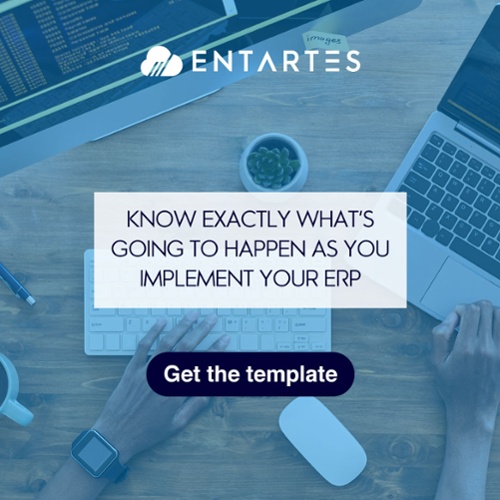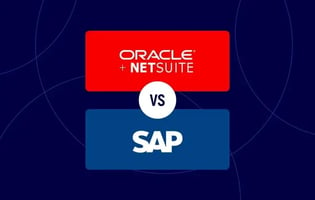If you are looking into a new Enterprise Resource Planning (ERP) software, chances are your current...
7 Factors To Look For In Your New ERP System
Finding a new ERP is never a simple task, but it's an opportunity for growth and change. Selecting the right software will be foundational to your organization's infrastructure and processes as it will optimize its activities, reduce administrative burden and improve upon consistency.
However, there are many solutions out there. Determining which is the best can seem overwhelming. In this blog I go over what you need to look for in your next ERP system as suggested by global tech expert and ERP champion, Cindy Jutras. I also summarize key points that you need to understand before you commit to an ERP.
Cindy is a champion of digital transformation and has studied software solutions in the context of the business benefits of technology extensively. You can learn more about her experience in this profile on CIO magazine. To her, selecting a new ERP is an adventure so you need to set the bar high in terms of expectations and prepare yourself well.
That is why she's analyzed key factors that will help all business select the ERP they need. I've summarized them into seven best practices, which you can dig deeper into in her blog and research studies like "What to Look For In a New ERP: It’s All About the Platform."
Your ERP Budget And ERP Prices
An ERP will optimize resources and streamline business processes, both of which will save you money. But that doesn't mean that you won't have an ERP budget in mind. ERP prices vary considerably, both based on the utility that you use and how you need to use it. Add-on modules could cost more than third-party integration, and the number of users you have in your organization will likely determine your base costs.
To calculate your ERP costs, calculate the total cost of ownership. That includes both adoption and maintenance. However, and I always make sure to tell my clients this, price does not determine choosing, deploying, and implementing an ERP successfully. There are other factors for you to ponder.
Your Expectations For Customization And Functionality
When it comes to ERP solutions, they reside on a spectrum. Cindy calls one corner of this spectrum “Out of the box” ERP solutions, which offer everything that you need to hit the ground running, but they can cost a little more. These can improve productivity and employee engagement and satisfaction because a single system consolidates everything.
Comparatively, on the other end, there are "best of breed” solutions that do a single thing very well but may need further integration, modification, and plug-ins to do everything you need. It will take more work, but you should customize it to your business.
Many companies end up saving money and time with an “out of the box” ERP solution. But if you need much customization, that can also lead to frustration. Before you decide, you should determine what you “need" from a system and what you “want” from a system. For instance, if you need inventory levels, a solution that doesn’t include an extension to manage that won't work.
Extensions, Customizations, And Configurations
Different ERP solutions could have different ways of encountering customization and extension. For modern ERP solutions, like Oracle's NetSuite, it's relatively easy. You add functions into the program to do different things. In more traditional or legacy solutions, customization and configuration often had to happen on a codebase level; the solution itself needed to be modified. It is more expensive and more cumbersome.
Whether your ERP solution is "out of the box" or "best in breed," you should look at what the platform might need to include and determine how easily the system will manage extensions, customizations, and configurations.
Cloud And Multi-Cloud Reliance And Support
Today, many organizations move toward hybrid cloud technology, with both private and public cloud features accessible. Most ERP solutions today are cloud-based, but some of them could take advantage of multi-cloud support (or even require it), while others may be able to be run on private or public cloud silos. When protecting and searching for data, it's essential to know whether the solution will disperse data or keep it within a specific system.
An "out of the box" solution with few or not-integrated, third-party products will be able to maintain data within a single system, whereas a "best in breed" system may need more strict controls.
Documentation And Support
With the many dozens of leading ERP solutions available today, it's also indispensable to know how well-documented and well-supported a system is. Top vendors like NetSuite ERP will provide a wealth of documentation online and technical support available for troubleshooting. More affordable or even open source ERP solutions could feel more accessible. Still, they could ultimately cost more time and money because the customer support or documentation may not be there.
Organizations need to be conscientious about the amount of documentation available for an ERP solution before committing and even considering demoing it to know exactly how it works.
User-Friendliness And Training
An ERP solution won't improve your organization's operations if your employees cannot use it. A necessary step toward selecting the right ERP is to find software that works well for your employees. Look at what reviews say about how user-friendly the program is and determine whether it has a steep learning curve. ERP solutions are incredibly complex, and training may take a long-time even after the initial implementation. But the more employees know about the solution, the better they will be able to leverage it.
So make sure to ask your ERP vendor these questions regarding user training:
-
What type of support is available for training?
-
Are there online conferences and seminars for end-users?
-
Are there books about this specific ERP or initial training courses and video courses that employees can take?
An ERP Implementation Plan
In addition to the ERP system itself, you also need to concern yourself with the ERP implementation costs, rollout, maintenance, and monitoring. Take a look at what service ERP vendors provide to deploy and implement the software.
Understanding what the ERP implementation process entails is as important as choosing the right system.
Eventually, you'll have enough information to move forward in investing in ERP technology with confidence. A talented technology solutions partner can help you get back in control and select the right solutions for you.
Key Takeaways From This Blog
-
Plan your investment in ERP considering both your budget and cost of owning a license, whether it is cloud-based or on-premise, and an "out of the box" or "best in breed" solution.
-
Determine how much customization the software should receive to meet your business needs.
-
Establish if you'd like the ERP to maintain data in a public or private cloud silos or other data management systems.
-
Decide if you'll want the service to include customer services with online documentation and technical support available for troubleshooting.
-
Ask your ERP vendor what service it will provide to deploy and implement, maintain, and monitor the software.






Blog Comments